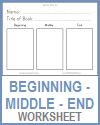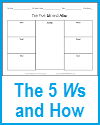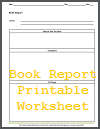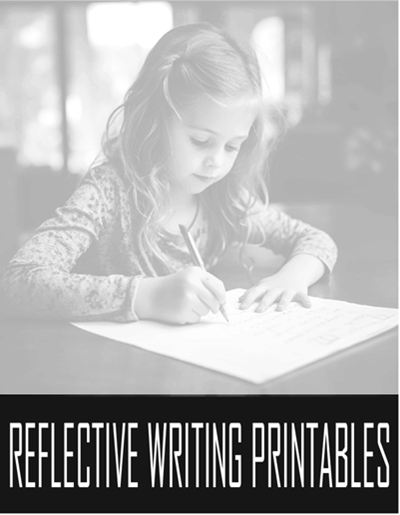| Reflective Writing Worksheets |
|---|
| www.studenthandouts.com ↣ ELA: English Language Arts ↣ ELA: Reflective Writing |
 |  |  | ||||||||
| Girl Reading Your Favorite Book Worksheet | 3-2-1 Closure Activity Worksheet | Beginning, Middle, End Worksheet | Five-Paragraph Essay Organizer | Four Things I Learned About |
 |  |  |  |  | ||||||
| Organize the Facts Worksheet | The Five Ws and How Worksheet | Daily Journal Handouts | Book Report Worksheet | Five Amazing Facts Writing Worksheet |
 |  | |||||||||
| Think-Pair-Share Worksheet | Ten Things I Learned this Year Worksheet |
|
Learning the art of reflective writing is important for English Language Arts (ELA) students for several reasons.
Critical Thinking: Reflective writing encourages students to think critically about their experiences, ideas, and learning. It prompts them to analyze and evaluate their thoughts, actions, and beliefs, fostering a deeper understanding of the subject matter.  Self-Awareness: Reflective writing helps students become more self-aware. By reflecting on their own experiences and reactions, students can gain insights into their emotions, motivations, and biases, leading to personal growth and self-improvement.
Self-Awareness: Reflective writing helps students become more self-aware. By reflecting on their own experiences and reactions, students can gain insights into their emotions, motivations, and biases, leading to personal growth and self-improvement. Metacognition: Reflective writing promotes metacognition, which is the awareness and understanding of one's thought processes. Students learn to examine their thought patterns and decision-making, which can enhance their problem-solving and decision-making skills. Effective communication: Reflective writing encourages students to express their thoughts and feelings clearly and coherently. This skill is valuable not only in academic settings but also in everyday life and future careers. Enhanced Learning: Reflective writing allows students to consolidate and internalize their learning. When students reflect on what they have learned and how they have learned it, they are more likely to retain and apply that knowledge effectively. Empathy and Perspective-Taking: Reflective writing often involves considering different viewpoints and understanding the experiences and perspectives of others. This can foster empathy and the ability to see issues from multiple angles, enhancing students' interpersonal skills. Goal Setting and Growth: Through reflection, students can set goals for personal and academic development. They can identify areas where they want to improve and create plans to achieve those goals. Emotional Intelligence: Reflective writing can help students develop emotional intelligence by recognizing and managing their emotions. It can also improve their ability to empathize with others' emotions and experiences. Life-Long Learning: Reflective writing instills a habit of continuous learning and self-improvement. It encourages students to question assumptions, seek feedback, and adapt to new information and experiences throughout their lives. Assessment and Feedback: Reflective writing provides a valuable tool for self-assessment and self-feedback. Students can evaluate their own work, identify areas for improvement, and use this information to revise and refine their writing and thinking. Incorporating reflective writing into the ELA curriculum empowers students to become more thoughtful, self-aware, and effective learners. It equips them with skills that extend far beyond the classroom and prepares them for success in various aspects of life. |
| www.studenthandouts.com ↣ ELA: English Language Arts ↣ ELA: Reflective Writing |








